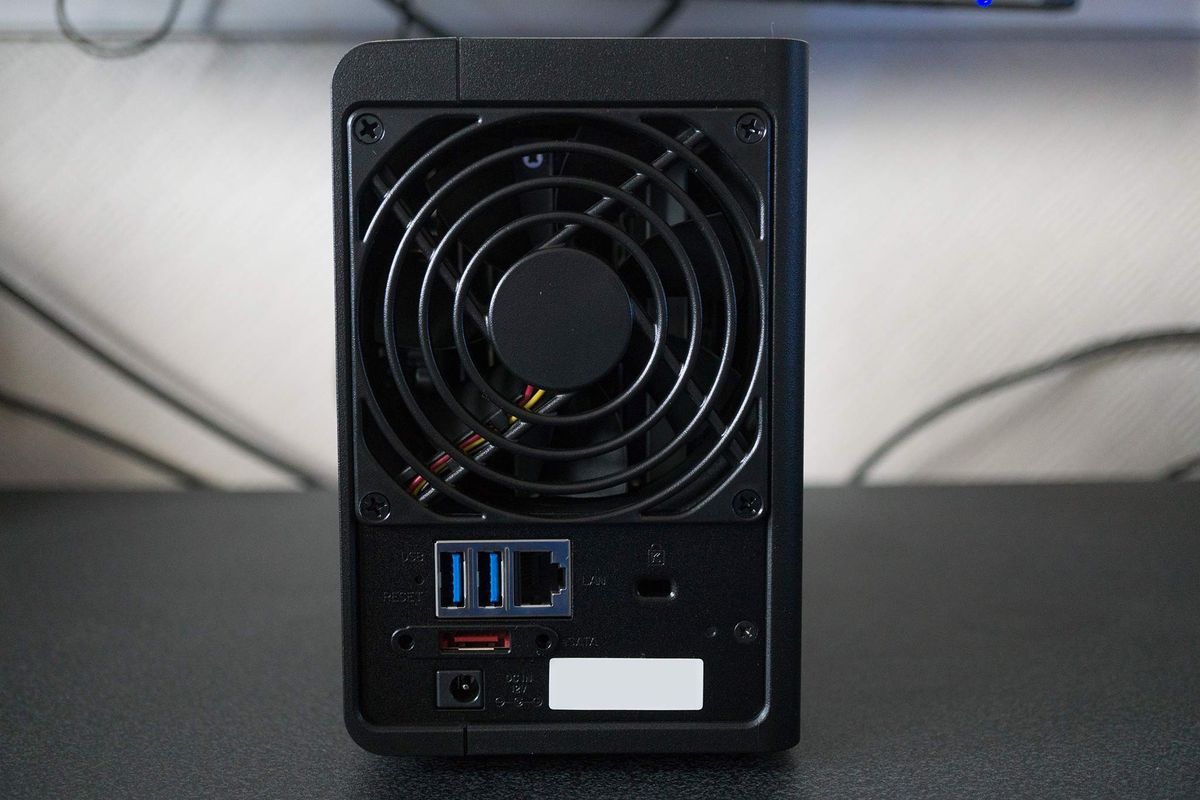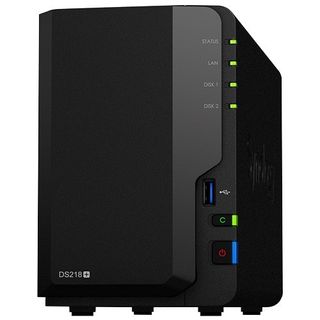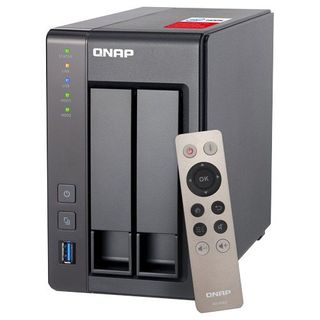Synology DS218+ vs. QNAP TS-251+: Which should you buy?
As an online tech company, we do a lot of work online as well as local and we need places to store data. As we've gone through several NAS units, we can recommend the perfect model match for your requirements.


Affordable
New to the wonderful world of NAS? You need the best bang for your buck and the DS218+ offers just that. Featuring a capable Intel processor and 2 GB of RAM, this unit has everything you need to get started. If you happen to believe you'll need more than 24 TB of storage, you'll need to pick up an expansion unit.
For
- Affordable.
- Compact.
- Reliable.
- eSATA port.
Against
- Relatively slow CPU.

Powerful
QNAP's two-bay TS-251+ is also an excellent NAS option for newcomers. The OS is user-friendly and everything just works, but the best feature is the support for QNAP's external (and rather pricey) bay enclosures. There's also plenty of room to grow with upgradable RAM.
For
- Compact.
- Reliable.
- Faster CPU.
Against
- Slightly more expensive.
These two NAS units are designed and marketed to those who don't require much storage, won't do intensive tasks, or are new to connected storage. They're affordable, but capable and can hook up to many external services like Plex.
Battle of the NAS
These two affordable NAS models from Synology and QNAP may look similar but differ in numerous areas when you look at the specifications sheet. For instance, the processors are different Intel Celeron SKUs, with QNAP's processor sporting a further two physical cores.
This doesn't really matter in the grand scheme of things — you still won't be transcoding 4K content — but it does make a difference in general use, particularly with multiple accounts connected simultaneously.
| Header Cell - Column 0 | Synology DS218+ | QNAP TS-251+ |
|---|---|---|
| CPU | Intel Celeron J3355Dual-core 2.0GHz | Intel Celeron J9000Quad-core 2.0GHz |
| RAM | 2 GB (6 GB) | 2 GB (8 GB) |
| Bays | 2 | 2 |
| Expansion | Yes | Yes |
| Capacity | 24 TB | 12 TB (60 TB with expansion) |
| Ports | 2x USB 3.01x LANeSATA | 2x USB 2.01x USB 3.02x LAN1x HDMI |
| OS | DSM | QTS |
If you plan on going above and beyond the maximum capacity of two drives (especially if configured as RAID) you will be able to hook up one of the supported Synology or QNAP expansion enclosures that offer additional drive bays.
If you are new to the game and don't know if you'll use the NAS on a regular basis, Synology may be the better option with its excellent DSM OS and affordable price. The QNAP TS-251+ isn't too far behind and sports better hardware internals, but it is more expensive. You'll be able to take advantage of a quad-core processor and the expansion of both RAM and storage.
Synology's DS218+ is an excellent entry NAS
Synology has done a great job with its range of NAS models and the DS218+ is a solid option for those starting out. Just because it's one of the more affordable solutions from Synology, that doesn't mean you will hit a brick wall when attempting to do some advanced configuration. You can even create your own media server.
DiskStation Manager is a reliable and user-friendly OS too, making it easy to get started. The only drawback to the Ds218+ is the support for two bays, which can become an issue if you quickly fill up available drives.
Get the Windows Central Newsletter
All the latest news, reviews, and guides for Windows and Xbox diehards.

Powered by the best NAS OS.
You're going to love the software support from Synology. DMS is excellent and very easy to grow accustomed to. The hardware is also reliable and well-built, making for quite the budget-friendly NAS.
QNAP is the best choice if you need something more
Much like Synology's DS218+, the TS-251+ from QNAP is one of the more affordable NAS models from the company. And just like the competitor product, QNAP includes the same Celeron processor, just a different, more powerful SKU with four cores as opposed to only two. Sporting better specs overall, as well as a higher price, you'll want to go with QNAP if you know you'll need more.

Rich Edmonds was formerly a Senior Editor of PC hardware at Windows Central, covering everything related to PC components and NAS. He's been involved in technology for more than a decade and knows a thing or two about the magic inside a PC chassis. You can follow him on Twitter at @RichEdmonds.